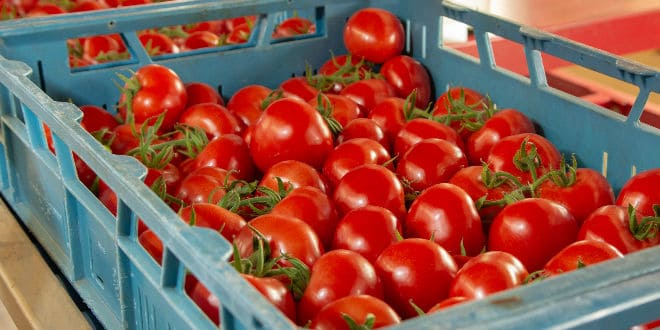Mexican tomato growers and the U.S. Department of Commerce signed a final Tomato Suspension Agreement and halt the process for imposing antidumping duties on tomatoes from Mexico.
Chief among the provisions is the commitment that inspections will be conducted by the U.S. Department of Agriculture in accordance with its normal practice, including being done in a timely manner and completed within 24 hours.
Commerce also committed that the inspection program, which does not take effect for at least six months, will be developed and implemented in consultation with experts at the USDA.
“The agreement was hard fought, but we were able to secure a number of important provisions that will make this deal work for our distributors and customers,” said Mario Robles, Director of the Sinaloa Growers Association.
The new Tomato Suspension Agreement prevents price suppression and undercutting, and eliminates substantially all dumping, while allowing Commerce to audit up to 80 Mexican tomato producers and U.S. sellers per quarter and includes an inspection mechanism to prevent the importation of low-quality, poor-condition tomatoes from Mexico, according to the U.S. Department of Commerce.
The Mexican growers were also able to preserve the ability to sell directly to U.S. retailers and otherwise protect the rights of these and other U.S. buyers to seek damages in the infrequent event of a breach of warranty. “It was very important to us that our U.S. customers not lose their options and we are happy that Commerce agreed,” said Salvador Garcia, President of the Baja Growers Association.
“Considering that we started the negotiations with Commerce with the Florida Tomato Exchange demanding that the reference prices should be extended downstream to the final sale and that U.S. buyers be stripped of legal rights, we believe we have ended up in a much better place,” said Oscar Woltman, President of AMHPAC, Mexico’s largest growers’ association.
Related Article: Hispanic Impact and Insights on the Fruit and Vegetable Industry in the U.S.
On November 14, 2018 the Florida Tomato Exchange sent a request to the U.S. Department of Commerce to terminate the 2013 Suspension Agreement on Fresh Tomatoes from Mexico. On February 6, 2019, Commerce notified the Mexican signatories that it would withdraw from the 2013 Suspension Agreement. On May 7, 2019, the 2013 Suspension Agreement was terminated and, as a result, Commerce continued its AD investigation on imports of fresh tomatoes from Mexico.
On the other hand, the Fresh Produce Association of the Americas (FPAA) warned that the new agreement will harm importers. “A new Tomato Suspension Agreement will ensure continued market access for Mexican tomatoes but it comes at an extreme cost to importers, who will face unjustified costs and disruption to business due to the controversial Border Inspection Mechanism, which acts as a technical barrier to trade,” said the FPPA in a press release.
Lance Jungmeyer, President of FPAA, said “it is completely unnecessary to require USDA to conduct quality inspections on an item that has already demonstrated a historical pass rate of 99.76 percent.”
It is not yet clear what the impact on Mexican tomato prices will be for the final consumer, as a result of the new Tomato Suspension Agreement.


